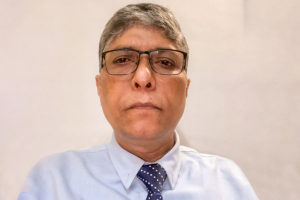Make manufacturing of the vaccine in India attractive
Satwik Shekhar, Legal Consultant (Assistant Professor), CTIL, IIFT, opines that smooth functioning of the supply chain and the IPR waivers are critical to ensure global vaccine equity. He adds that the question of IPR waivers ultimately boils down to ramping up the country’s pharmaceutical industry to ensure that they are capable of making COVID-19 vaccines.

IBT: In this battle between the moral right to live and the intellectual right to innovate in the context of the IPR waivers for COVID-19 vaccine, what is the middle ground you propose?
Satwik Shekhar: The proposal drafted by India & South Africa is the middle ground in this debate because it is holistic. The proposed TRIPS waiver is temporary in nature and is being negotiated due to the unprecedented nature of the pandemic, which has affected the developed, developing and least developed nations (LDCs) alike. The waiver does not cover, for now, other health emergencies. Secondly, the waivers will not benefit only the developing nations and the LDCs. If there are certain developed nations which are not manufacturing the vaccine or the medicines or do not have technologies to tackle COVID-19 at the moment (because probably they did not enter into a commercial agreement with companies making the vaccine such as AstraZeneca, Pfizer, Johnson and Johnson), the waiver will benefit them too as they will be able to get access to medicine and technology through this. This is important because only the developing countries and LDCs enjoy the existing flexibilities granted under the TRIPS Agreement. This is how the waiver proposal finds balance by making it an all-inclusive proposal.
IBT: Do you think that IPRs are a charade in the name of vaccine nationalism embraced by many wealthy nations?
Satwik Shekhar: Currently, there are a few countries involved in production of an antidote against the coronavirus. These include the USA, Canada, Brazil, the UK, Belgium, Netherlands, Switzerland, South Korea, Germany, Russia, China, Japan and India. The reason why these countries are dominating the global COVID-19 vaccine production is because they entered into commercial agreements with vaccine making companies and financed their R&D using public funds. This allowed countries like the USA to procure the first few doses (for example, say the first 200 million doses) for their population. In some ways, such commercial arrangements perpetuated vaccine nationalism. In the USA’s case, it is reported that only after it procured sufficient doses for its people and after it made sure that its pharma lobby is on board did the US agree to support the IPR waiver proposal of India and South Africa. On the other hand, Germany continues to oppose the waiver. So it will be interesting to see where this “vaccine nationalism” leads the opponents of the proposal to.
IBT: How can the world move to vaccine equity and what role can India play in addressing the glaring disparity in the global access to vaccines?
Satwik Shekhar: By drafting the proposal to lift the waivers on TRIPS, India has already taken a firm step towards promoting vaccine equity. It has also reached out to other nations and extended medical and financial support in their hour of difficulty to help them deal with this crisis.
Further, two things are very critical to ensuring vaccine equity – the smooth functioning of the supply chain and the IPR waivers. At present, the raw materials used to produce COVID-19 vaccines are procured from suppliers in as many as 15 different countries in some cases. So, supply chain management is very important. Secondly, even if the TRIPS waivers are granted, can all the companies in pharmaceutical industry make vaccines? Do they have the required funds, infrastructure and technological know-how for that? So, the industry needs to be prepared at the same time to gear up for this challenge.
IBT: If the WTO members reach a consensus on the IPR vaccine waiver, does the world have the capability to manufacture vaccines? Will it expedite the delivery of vaccines?
Satwik Shekhar: The proposal drafted by India & South Africa pertains to sections 1 (Copyright and Related Rights), 4 (Industrial Designs), 5 (Patents), and 7 (Protection of Undisclosed Information) of TRIPS Agreement. It was drafted to enable developing countries to get access to life-saving vaccines and therapeutics. They have recently submitted a revised draft, which has found the support of 62 WTO members, including the likes of the USA & China. If all the WTO members come to a consensus on lifting the waivers on TRIPS, the entire discourse will shift to drafting a binding decision to allow this waiver.
IBT: If the WTO fails to reach a consensus on the proposed IPR waiver, what options do countries have to address the vaccine supply problem?
Satwik Shekhar: The negotiations in Geneva may be fairly time taking as they will revolve around the complexities of each and every facet of COVID-19 treatment such as vaccines, drugs, PPEs and so forth. Further, even if one member disagrees with the provisions, the whole negotiation will fall apart. At the moment, some European nations are opposed to it.
If the consensus doesn’t materialize, then, India needs to shoot on multiple cylinders. The first option is compulsory licensing. India has been stalling on using the compulsory licensing provisions under its domestic Patents Act due to various practical reasons. This could be implemented with respect to Bharat Biotech, which has the manufactured COVAXIN. A difficulty here is that if compulsory licensing takes place, those pharmaceutical companies have to reverse engineer the vaccine and then manufacture their own drug. This would require further R&D, clinical trials, hits and misses, licenses and approvals from the government and is, therefore, a time-taking process. Another option is for India to encourage patent holders to voluntarily license their patents to Indian manufacturers, as has been the arrangement between AstraZeneca and The Serum Institute.
The best option could be for India to enter into commercial agreements with companies making vaccines. The recent agreement between India and Russia for the Russian COVID-19 vaccine Sputnik V (Gam-COVID-Vac) to be produced by Panacea Biotec Ltd in India is a good example. The pharmaceutical industry needs to buckle up to embrace this challenge. Historically, India has been highly dependent on China for importing the raw materials (APIs) needed to produce drugs. But now the pandemic has opened new avenues for the industry and government to explore in the pharma sector. The challenge is that we have to act fast given the pace of mutations in the coronavirus and the race among countries to get vaccines. For example, Vietnam and other developing countries, with inexpensive raw materials, low-priced labor, and other aspects can actually leverage companies like Johnson and Johnson to set up manufacturing units in Vietnam. So, investment needs to be made to enhance the infrastructure, R&D, finance and skills that the pharma industry has.
The government, on its part, needs to draft policies that are WTO compliant to encourage foreign pharma companies to invest and/or relocate their manufacturing activities to India. Two conditions need to be met for compliance with the WTO. The policies cannot mandate for vaccine makers to use locally sourced raw materials. Secondly, subsidies and incentives cannot be offered on a condition that the companies must export their products. Some of the things that the government can do to attract international vaccine makers is to offer administrative flexibilities, tax breaks or incentives on issues like land acquisition for setting up their factories etc.
Satwik Shekhar is currently a Consultant (Legal) at the level of Assistant Professor at the Centre for Trade and Investment Law (Indian Institute of Foreign Trade) under the Ministry of Commerce and Industry. Satwik’s current areas of focus include WTO law, trade regulation and international investment law. He holds an LL.M. in International Law from the Graduate Institute of International and Development Studies (IHEID), Geneva, Switzerland.













Wow Mr.shekhar provided great insight into the matter. Would love more such articles on his point of view of things